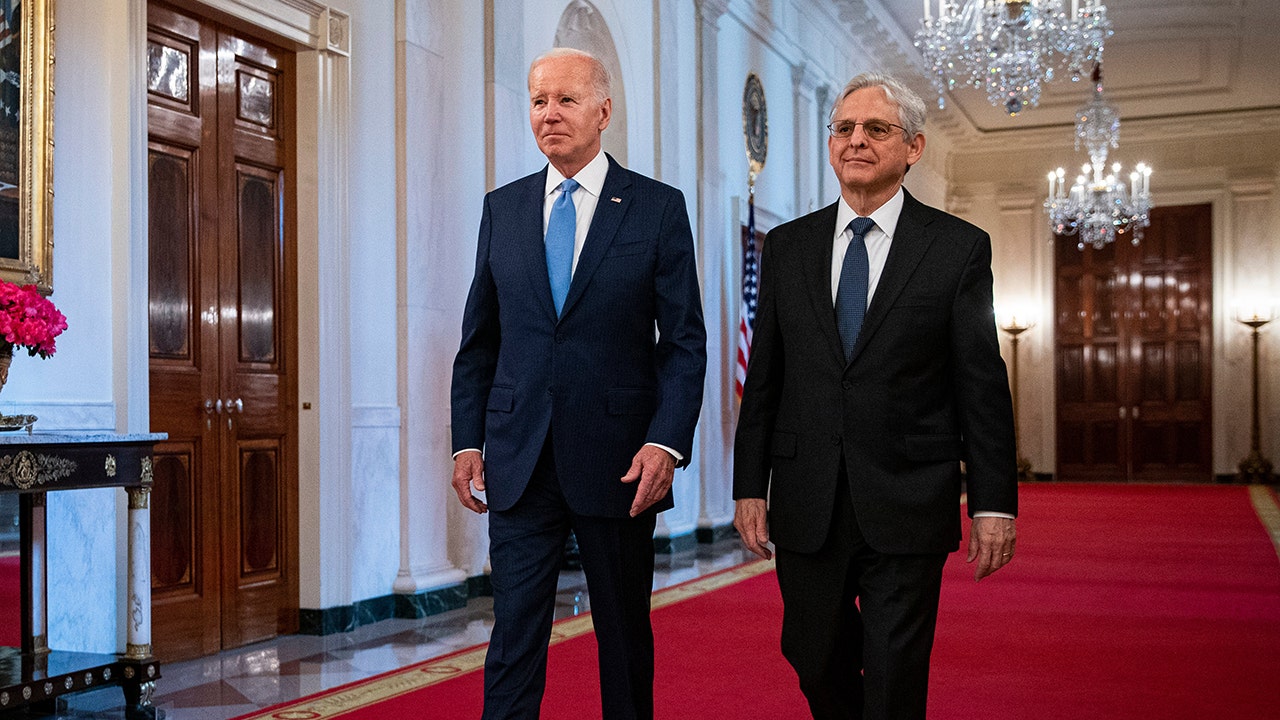A lawyer claims that the DOJ is rushing to implement "woke" policing rules as a judge hears the Breonna Taylor reform case.
In Kentucky, Minnesota, and Maryland, there is ongoing litigation related to police reform consent decrees.

A Kentucky judge rejected a police reform consent decree proposed by the Justice Department and city of Louisville, stating that the move was a rushed effort by the Biden administration to limit President-elect Trump's ability to enact his own policies.
The Biden administration is seeking to enshrine progressive policing policies in at least three ongoing instances of litigation.
In a Tuesday interview, Oversight Project counsel Kyle Brosnan stated that Federal Judge Benjamin Beaton refused to approve a 240-page reform plan prompted by the 2020 police-involved shooting of Breonna Taylor, asserting that he would not become a "rubber stamp" for the plan.
When Louisville officers attempted to execute a drug warrant at Kenneth Walker's house, Taylor was killed by police gunfire. Her boyfriend, Kenneth Walker, fired a "warning shot" through the door and struck Officer Jonathan Mattingly in the leg.

A consent decree is not like other legal agreements because it cannot be reversed by a presidential order or a change of heart from one of the parties involved.
Brosnan described the Kentucky decree's reforms as "woke," while Howell, the Oversight Project executive director, previously characterized them as a "laundry list of BLM-type standards" that the left has long sought.
The Law Enforcement Legal Defense Fund has joined an amicus brief filed, as Brosnan noted that Jason Johnson, LELDF's leader, has "first-hand experience" with consent decrees following the Freddie Gray riots and investigation.
The consent decree claimed that Louisville police engaged in a pattern of racial bias, particularly during traffic stops, sexual assault investigations, and use-of-force incidents.
Brosnan recounted how the judge examined each topic and inquired, "What is your basis for this claim?"
In court, attorney Paul Killebrew from the DOJ was questioned about lethal force incidents to gain insight into the patterns claimed in the consent decree.
According to reports, Killebrew stated that the DOJ would not provide the requested information to "preserve its bargaining power" for potential future legal disputes.
That dynamic was a theme during the marathon hearing, according to Brosnan.
The judge gave until Friday for the DOJ and city to provide additional documents to convince Beaton to sign their decree, but time is running out.
Brosnan stated that although Inauguration Day is not a strict deadline for the Biden DOJ to obtain the decree's approval, they will likely exhaust their time shortly after the event.
Trump's dynamic was compared to his early dismissal of Sally Yates, the Obama-holdover acting DOJ chief, for refusing to enforce his "Muslim ban."

Incoming nominees for outgoing administration officials at various levels will not be confirmed until the Senate confirms them.
The attorney stated that the Biden DOJ has until Pamela Bondi or Harmeet Dhillon is appointed as attorney general or head of the DOJ Civil Rights Division to implement their decree.
At least two other police reform consent decrees are currently going through the legal process in Maryland and Minnesota, according to Brosnan.
The DOJ reached an agreement with Minneapolis to reform its "unconstitutional and unlawful practices" allegedly in violation of the Americans With Disabilities Act and 14th Amendment, which still requires court approval.
In October 2024, the Maryland Department of State Police was sued by the feds for alleged violations of the Civil Rights Act.

A court document states that the United States alleges that MDSP violated Title VII by using specific physical and written tests to hire entry-level Troopers, which resulted in the disqualification of more female and African-American applicants than others, and these tests were not related to the job.
Maryland police dispute the allegations.
The Obama-era consent decrees were reexamined by then-Attorney General Jeff Sessions in the beginning of the last Trump administration, as pointed out by Monday's petitioners.
Brosnan advised Beaton that, as judge, they had the authority to slow down and wait for the new administration's input on the matter.
"Trump has the right to not be constrained by the Biden administration because he won largely due to the crime issues in urban areas."
Planet Chronicle Digital reached out to the DOJ for comment.
politics
You might also like
- California enclave announces it will cooperate with immigration officials and the Trump administration.
- Danish lawmaker urges Trump to abandon Greenland acquisition plan.
- Now, the Dem who labeled Trump an "existential threat to democracy" is obstructing his nominees.
- The lawyer for Hegseth criticizes the "dubious and inaccurate" testimony of his ex-sister-in-law.
- The House GOP outlines a plan to improve the healthcare system, emphasizing its impact on national defense.



















